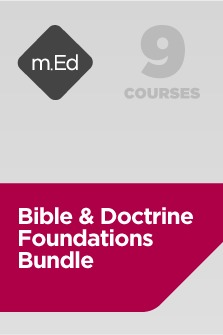James Garland
 So, I have Logos Platinum, and now I have to spend a monthly fee to get their up-to-date information? I'm really starting to feel that Logos, or Faithlife, or what ever their name is now, is the worst company I have ever come into contact with, and the 6,000 books I have in my library are just a complete waste of money.
So, I have Logos Platinum, and now I have to spend a monthly fee to get their up-to-date information? I'm really starting to feel that Logos, or Faithlife, or what ever their name is now, is the worst company I have ever come into contact with, and the 6,000 books I have in my library are just a complete waste of money.- A satisfied customer is a company's best promoter and advertiser. Come on Logos, make a plan to update, without cost, to those who has invested so much! What's driving this monthly fee, maintenance, development or profit? if all of the above, how often, and how high will this fee go up? Please tell people, up front, what's the real cost to fully invest in your product. People don't like bait and switch tactics or its appearance. I hope Logos would reconsider this move.
- See Bob's post here. https://community.logos.com/forums/p/114198/756417.aspx#756417
 Great program, NOT!!! - they get to hold your money, and probably receive interest on it... and you don't. Logos is a good tool, but more and more the company is displaying a lot of things that are about profit for them, nothing more. Like the whole admin fee - $5 per month, if you buy a $100 dollar item, break it out over five months, you pay $25 in fees, an interest rate of over 60% annually. That is criminal. Admin fee... REALLY? It is nothing but usury and a program loan-sharks would be proud of.
Great program, NOT!!! - they get to hold your money, and probably receive interest on it... and you don't. Logos is a good tool, but more and more the company is displaying a lot of things that are about profit for them, nothing more. Like the whole admin fee - $5 per month, if you buy a $100 dollar item, break it out over five months, you pay $25 in fees, an interest rate of over 60% annually. That is criminal. Admin fee... REALLY? It is nothing but usury and a program loan-sharks would be proud of. How can we order, when we can't see anything inside? Logos needs to stop always blowing their own horn. Tell me what's in the material, and let me see a chapter... better yet, Since Amazon offers a 30 money back guarantee, shouldn't a Christian business at least be as user friendly and helpful as Jeff Bezos, a committed atheist. I won't get into the whole usury be charged to Christians... but maybe Logos stopped considering themselves a Christian business, so it's ok.
How can we order, when we can't see anything inside? Logos needs to stop always blowing their own horn. Tell me what's in the material, and let me see a chapter... better yet, Since Amazon offers a 30 money back guarantee, shouldn't a Christian business at least be as user friendly and helpful as Jeff Bezos, a committed atheist. I won't get into the whole usury be charged to Christians... but maybe Logos stopped considering themselves a Christian business, so it's ok.- James, Logos does have a 30 day money back guarantee. If you are not satisfied with a purchase you may return it for any reason. I've done it multiple times. Hope this helps.
- James: Indeed, we will gladly offer you your money back within 30 days if you're not satisfied with this series. And here's my personal email address (I'm the publisher and one of the authors), feel free to get in touch if you have questions: john[at]logos[dot]com.
- More sample pages are up now.
 This could have been a great tool for people that can't go to a Bible college. But at a thousand dollars for what amounts to a few video classes... be better of enrolling in some online Bible classes, places like West Coast Bible College offer what amounts to their freshman year through correspondence for free.
This could have been a great tool for people that can't go to a Bible college. But at a thousand dollars for what amounts to a few video classes... be better of enrolling in some online Bible classes, places like West Coast Bible College offer what amounts to their freshman year through correspondence for free. 1910 edition... for a commentary on the Bible, when it published isn't real important since God's Word is unchanging, and it is good to see how Christians in times past viewed it. For an encyclopedia, which is supposed to comment on world facts, it is 100 years out of date. This is one of the worst Logos offerings yet -
1910 edition... for a commentary on the Bible, when it published isn't real important since God's Word is unchanging, and it is good to see how Christians in times past viewed it. For an encyclopedia, which is supposed to comment on world facts, it is 100 years out of date. This is one of the worst Logos offerings yet -- I think this is geared toward the Noet academic crowd as a snapshot in time of the body of knowledge available in the 1920s. Otherwise I agree with much of your analysis.
 Wescott didn't believe in the deity of Christ - why would I want a book written by him? He said: "He never speaks of Himself directly as God, but the aim of His revelation was to lead men to see God in Him." (Westcott, The Gospel According to St. John, p. 297). And "I reject the word infallibility of Holy Scriptures overwhelmingly." (Westcott, The Life and Letters of Brook Foss Westcott, Vol. I, p.207). These are not statements of someone that would be qualified to teach a child Sunday School -
Wescott didn't believe in the deity of Christ - why would I want a book written by him? He said: "He never speaks of Himself directly as God, but the aim of His revelation was to lead men to see God in Him." (Westcott, The Gospel According to St. John, p. 297). And "I reject the word infallibility of Holy Scriptures overwhelmingly." (Westcott, The Life and Letters of Brook Foss Westcott, Vol. I, p.207). These are not statements of someone that would be qualified to teach a child Sunday School - Not sure - what has been changed? Says the text was updated... how? Did they leave verses out? Has the latter part of Mark 16 been thrown out? I won't buy this with so many things unclear.
Not sure - what has been changed? Says the text was updated... how? Did they leave verses out? Has the latter part of Mark 16 been thrown out? I won't buy this with so many things unclear.- No, archaic expressions are retained. Essentailly, this is the KJV with no italics and modern spelling (e.g., heretick --> heretic), and it is divided into paragraphs. It also includes the original translator's notes. You know, you can always just google "New Cambridge Paragraph Bible" and look at the reviews on Amazon and random blog posts. That's what got me to buy it. And I would love to have it on Logos!
- The question has been answered but whether it is complete is still not clear. Is this the text from a particular early edition of the KJV? Which one? Are typesetting errors fixed? Are translation errors fixed? Are old fashion words replaced with more modern words? Are words with seldom used or old fashion definitions replaced if the word is in modern use with different definitions? How is it different form the first version? Thanks for helping.
- All of the manuscripts of the original translators, the early print versions and the translators notes made on an older Geneva Bible have been compared one by one by Norton and this is best approximation of the text the original 1611 translators wanted to publish. There was a companion volume published "A Textual History of the King James Bible" that in detail shows each change that was made to the traditional KJV (actually revised in 1769) and why the change was made.



